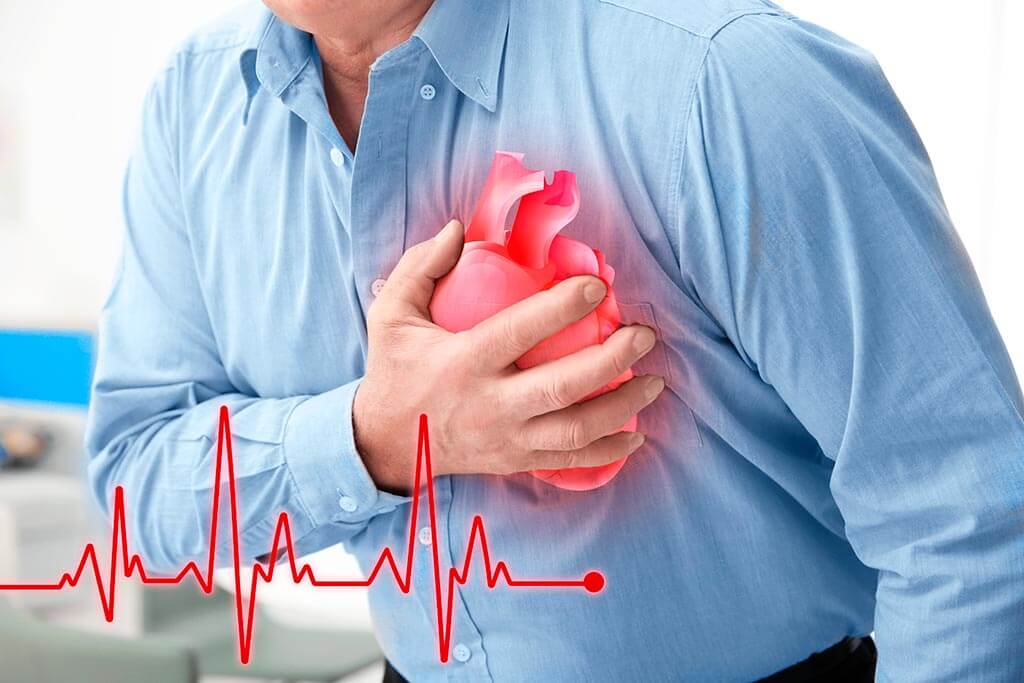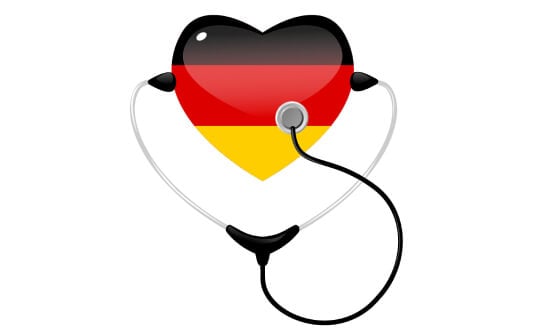According to the WHO, 17.5 million people die from cardiovascular diseases every year. With timely intervention, it was possible to prevent premature death in 80% of cases.
In many cases, conservative treatment is ineffective, so doctors resort to surgery. Patients often choose German clinics, especially those who require complex cardiac surgery. It is not surprising, because cardiac surgery is carried out at the highest level here and occupies a leading position in the statistics of successful operations.
According to the German Society for Thoracic and Cardiovascular Surgery, there are more than 80 centers and departments of cardiac surgery in Germany. They perform over 100,000 surgeries every year. Surgical treatment is possible at any age: more than half of all operations are performed on patients over 70 years old; about 15% of interventions – are on patients over 80 years old. What is especially significant, success statistics exceed 98%.
In German hospitals , cardiac surgeons pay special attention to maintaining a high quality of life after the intervention. By combining high-tech surgical procedures with personalized cardiac rehabilitation, most patients return to active daily life within a few weeks after surgery. The rehabilitation period after minimally invasive interventions lasts for several days.

What treatment do German cardiac surgeons offer in most cases?
German cardiac surgeons are highly qualified specialists with extensive experience. They perform the most complex heart surgeries, honing their professional skills to perfection every day. Doctors are ready to provide effective medical care to all patients, regardless of age, the severity of heart disease, or the presence of concomitant pathology.
German cardiac surgeons perform surgical treatment of the following diseases:
- Congenital heart disease
- Acquired heart defects
- Coronary heart disease
- Cardiac arrhythmias
- Diseases of the aorta
- Aortic aneurysms
- Tumors of the heart
Innovative treatment of cardiac diseases in Germany
Typically, heart surgery is performed through a middle sternotomy, in which the chest is opened by dissecting the sternum. The median sternotomy provides excellent access to the heart and large vessels, but it has some disadvantages - after surgery, a long scar remains on the patient's chest, resembling an operation.
German cardiac surgeons strive to perform heart surgeries with the most gentle methods. They offer their patients minimally invasive treatments using mini-access. The advantages of minimally invasive heart surgery are obvious since it is minimally traumatic, has a lower risk of surgical and postoperative complications, and ensures a quick patient recovery.
In hospitals in Germany, heart surgeries are performed using the most modern techniques. It allows doctors to achieve excellent results and guarantees patient safety. Such surgeries include coronary artery bypass grafting, heart valve replacement and reconstruction, RF catheter ablation, pacemaker, and defibrillator implantation.
Coronary artery bypass grafting
Coronary artery bypass grafting is one of the most-demanded cardiac surgeries in Germany. It is given to patients with coronary heart disease. The essence of the operation is the formation of a shunt (shunt), through which blood flows to the heart, bypassing the narrowed area of the coronary artery. Coronary artery bypass grafting allows you to restore blood supply to the myocardium.
Classic coronary artery bypass grafting is performed when cardiac activity is stopped by connecting the patient to a heart-lung machine. However, cardioplegia (cessation of heart activity) is not always straightforward and can lead to unwanted side effects.
German cardiac surgeons have learned to do CABG with a beating heart without connecting the patient to a heart-lung machine. This approach allows for reducing blood loss during surgery and avoiding the development of stroke and other neurological postoperative complications associated with circulatory arrest. Such an operation can be successfully performed even in elderly, debilitated patients.
Depending on the affected coronary vessel and the length of the stenotic area, beating heart CABG is performed through a median sternotomy or a mini-access in the fifth intercostal space. In any case, the intervention is performed under general anesthesia. Using a vacuum device, the surgeon immobilizes the target area of the myocardium while the heart continues to contract. The immobility of the operating field makes it possible to apply reliable vascular sutures, restoring the blood supply to the heart muscle through the donor's vessel. As a rule, the operation requires well-coordinated work of a team of surgeons within 3-4 hours.
The average coronary artery bypass grafting cost in specialized German hospitals is 38,040 €.
Heart valve surgery
Acquired heart defects are heart diseases caused by stenosis or insufficiency of one or more of its valves (mitral, tricuspid, aortic, or pulmonary valves). There are two main methods of surgical treatment for heart disease:
- Valve reconstruction surgery is the operation to repair the valve leaflets.
- Valve replacement surgery is the surgery to replace a heart valve with an artificial or biological prosthesis.
Mainly, heart valve replacement in Germany is performed using minimally invasive methods. Such an operation does not require the termination of cardiac activity, connecting the patient to a heart-lung machine, thoracotomy, etc. The intervention is carried out by the endovascular method - through large blood vessels. German cardiac surgeons use different techniques depending on the location of the affected valve.
TAVI – transcatheter aortic valve implantation
In case of aortic valve defect, German cardiac surgeons perform TAVI (transcatheter aortic valve implantation). The intervention does not require general anesthesia - in most cases, local anesthesia with mild sedation is sufficient. In connection with the elimination of the risks associated with general anesthesia and thoracotomy, TAVI is indicated for elderly patients, as well as for patients with pathologies of the heart and lungs with impaired kidney and liver function.
After anesthesia, the doctor inserts a catheter into the patient's femoral vein, at the end of which an artificial valve is folded. The catheter is moved through the vessels under visual control - echocardiographic or radiological. When the catheter reaches the vascular ring, an artificial valve opens. It firmly presses the leaflets of the patient's aortic valve against the aorta walls and immediately begins to function. In this case, there is no need to remove the old aortic valve since, over time, it is replaced by connective tissue.
The TAVI procedure takes about 2 hours. Due to its higher safety and efficacy compared to classic open aortic valve replacement surgery, TAVI is also recommended for patients in moderate to low-risk groups. The range of indications for this operation continues to expand, even though not all cardiology centers can offer their patients such an operation due to the lack of qualified surgeons.
The average transcatheter aortic valve implantation cost in German cardiology centers is 67,785 €.
MitraClip – endovascular treatment for mitral regurgitation
In the case of mitral valve defects, German doctors successfully perform reconstructive surgery using the MitraClip system. The MitraClip system is composed of an alloy of cobalt and chromium. This composition makes the system immunologically inert (the risk of rejection of MitraClip by the patient's body is zero). It also does not interact with blood components and substances dissolved in the blood. Another advantage of cobalt-chromium alloy dentures is their durability - MitraClip does not wear out and does not require replacement.
The intervention is performed under echocardiographic guidance, so a probe is inserted through the esophagus before the operation for real-time ultrasound imaging. It is followed by local anesthesia of the groin (access through the femoral vein) and general sedation.
The surgeon makes a small incision in the femoral vein and inserts the MitraClip catheter through it. Using echographic imaging, the doctor moves the catheter into the left atrium, where the mitral valve is located. After reaching the target area, the MitraClip unfolds, and the leaflets are fixed to the affected area of the mitral valve.
MitraClip reliably fixes the valve leaflets in the desired position, thus restoring hemodynamics. Before removing the guide catheter from the vascular system, one more echocardiography is mandatory - the doctor, in real time, evaluates the functioning of the reconstructed mitral valve and the reliability of fixation of the MitraClip on its leaflets. If necessary, the physician may decide to use an additional MitraClip for better functional results. The additional clip is inserted in the same way as the main one.
Despite the technical complexity of the procedure, it takes no more than 1.5-2 hours. The doctor removes the stitches 8 hours after the operation, and after 1-3 days, the patient is discharged from the hospital.
Mitralign – minimally invasive annuloplasty
Unlike the MitraClip, the Mitralign System reduces the size of the mitral tendon annulus in the case of hyperextension. Surgery using the Mitralign System is indicated for patients with mitral regurgitation and functional mitral valve regurgitation. Due to the low risks during surgery and in the postoperative period, annuloplasty using Mitralign can be performed even with dilated cardiomyopathy or severe congestive heart failure.
The Mitralign System is administered through the femoral vein after local anesthesia and sedation of the patient. Considering the need for physical remodeling of the annulus fibrosus of the mitral valve, it consists of eight instruments - a microsurgical scalpel, suture material, shipping, and guiding catheters. To carry out the necessary manipulations, some of them are located in the left atrium, and some in the left ventricle.
During the intervention, the surgeon forms a fold on the expanded mitral valve annulus, thereby reducing its size. The resulting folds are fixed with two pairs of staples. The procedure is performed under visual control, using three-dimensional echocardiography in real time, intraoperative. Before its completion, the surgeon assesses the blood flow through the mitral valve - there should be no return blood flow through it during ventricular systole.
The average cost of a minimally invasive annuloplasty with the Mitralign system in German cardiology hospitals is €38,636.
Carillon Mitral Contour System - Minimally Invasive Heart Failure Treatment
The Carillon Mitral Contour System is designed for minimally invasive (endovascular) mitral valve restoration in patients with heart failure caused by mitral regurgitation. Carillon Mitral Contour has shown excellent results in patients with dilated cardiomyopathy and a low left ventricular ejection fraction of 50% or less.
The Carillon Mitral Contour System is introduced into the cardiovascular system through the jugular vein under local or general anesthesia (the doctor chooses the method of anesthesia individually, depending on the patient's hemodynamic parameters). The size of the system is adjusted according to the size of the coronary sinus directly during the procedure. The device is then fixed in the coronary sinus, reconstructing the affected mitral valve.
According to the results of clinical investigations , the installation of the Carillon Mitral Contour System leads to the normalization of the structure and volume of the left ventricle. It also significantly decreases the pathological return of blood flow through the mitral valve within a year. ... All this leads to an increase in the quality and duration (on average 3 years) of patients' lives.
The average cost of minimally invasive heart failure treatment using the Carillon Mitral Contour system in specialized German hospitals is 38,680 €.
NeoChord – beating heart tendon chordae repair
The NeoChord DS1000 system is used to correct mitral valve prolapse due to rupture of tendon chords, including in patients after myocardial infarction. This procedure avoids complete mitral valve replacement even in severe mitral regurgitation.
Doctors perform the NeoChord procedure under general anesthesia. The NeoChord system is inserted into the left ventricle of the heart through a mini-thoracotomy - a 5-6 cm incision in one of the intercostal spaces. The operation is performed on a beating heart without being connected to a heart-lung machine. Imaging is done with 3D or 2D transesophageal echocardiography.
During the intervention, the cardiac surgeon implants an artificial chord instead of the damaged ones and then controls the movement of the mitral valve leaflets. If abnormal blood flow through the mitral valve persists, the surgeon corrects the position of the chords in the left ventricle or the degree of its tension. The clinical outcome of the operation can be assessed immediately after its completion and the transfer of the patient from the intensive care unit.
Pacemaker implantation
Pacemaker implantation is indicated for patients with low heart rates (bradycardia). It is a special device that will stimulate heart contractions. In German hospitals, patients are offered the most modern models of pacemakers that will work without replacement for about 15 years.
Doctors operate under local anesthesia. First of all, the surgeon pierces the subclavian vein, through which the electrodes are guided into the heart chambers. Then the body of the pacemaker is fixed under the pectoral muscle, to which the electrodes are connected. At the final stage of the operation, the wound is sutured with a plastic suture.
Radiofrequency catheter ablation
This modern method is used in patients with cardiac arrhythmias associated with a high risk of sudden cardiac arrest. The essence of the procedure is to destroy the pathological focus in the heart, which generates electrical impulses.
Radiofrequency ablation is performed with a catheter electrode inserted through the femoral vein. The catheter is inserted through the vessels into the heart cavity. Then, an electrical impulse is supplied through this catheter-electrode, which destroys the arrhythmogenic focus.
The best Heart Surgery Clinics in Germany
Heart surgeries are performed in specialized cardiac surgery clinics. The following medical institutions are among the best Cardiological Centers in Germany :
| University Hospital Essen | According to FOCUS magazine, this hospital is regularly ranked among the best medical institutions in Germany. The Department of Cardiothoracic Surgery at the University Hospital Essen performs cardiac surgeries of any complexity, including minimally invasive interventions. |
|---|---|
| University Hospital Oldenburg | Physicians in the Department of Cardiac Surgery have extensive practical experience. All types of prosthetics and reconstructive operations on the heart valves, as well as technically complex aortic root replacement, are performed here. |
| University Hospital Ulm | The Department of Cardiothoracic Surgery offers a wide range of surgical interventions on the heart: from coronary stenting to ventricular remodeling. Surgeons often combine world-renowned interventions with their developments when choosing the optimal operation. |
| University Hospital Frankfurt am Main | According to Focus magazine, the University Hospital Frankfurt am Main ranks among the best medical institutions in Germany. The Department of Cardiothoracic Surgery at the University Hospital Frankfurt am Main is distinguished by a powerful technical base, which allows performing operations on the heart and blood vessels using modern techniques. |
How can I go to Germany for treatment?
Today, Germany is among the leaders in the field of cardiac surgery. Medical tourism operator Booking Health will help arrange cardiac surgery in Germany. We work directly with the best cardiology clinics in Germany and can offer our clients the best conditions. The cost of treatment for you will be lower due to the absence of overpricing and additional coefficients for foreign patients.
Booking Health also provides the following services:
- Selection of a cardiac surgery clinic that demonstrates the best results in the particular disease treatment.
- Communication with the hospital administration
- Development of a preliminary treatment program
- Appointment for the most suitable dates
- Preparation of a package of medical documents in German
- Providing health insurance
- Control of invoicing and return of unspent funds
- Flight and hotel booking, transfer from airport to hospital and back
- Interpreter support, medical coordinator assistance
With the help of Booking Health, thousands of patients have been successfully treated in the best clinics in Germany. You can describe your problem in the online application "Submit Application", and a highly specialized medical consultant will contact you within 24 hours.
Choose treatment abroad and you will get the best results surely!
Authors:
The article was edited by medical experts, board certified doctors Dr. Vadim Zhiliuk and Dr. Nadezhda Ivanisova . For the treatment of the conditions referred to in the article, you must consult a doctor; the information in the article is not intended for self-medication!
Source:
ECR - European Cardiology Review
JAHA - Journal of the American Heart Association
Read:
Leading German Cardiologic Hospitals: An Expert Guide
Cardiac surgery in Germany: coronary artery bypass grafting (CABG)
Article menu:
- What treatment do German cardiac surgeons offer in most cases?
- Innovative treatment of cardiac diseases in Germany
- Coronary artery bypass grafting
- Heart valve surgery
- TAVI – transcatheter aortic valve implantation
- MitraClip – endovascular treatment for mitral regurgitation
- Mitralign – minimally invasive annuloplasty
- Carillon Mitral Contour System - Minimally Invasive Heart Failure Treatment
- NeoChord – beating heart tendon chordae repair
- Pacemaker implantation
- Radiofrequency catheter ablation
- The best Heart Surgery Clinics in Germany
- How can I go to Germany for treatment?
Don't know where to start?
Contact Booking Health






